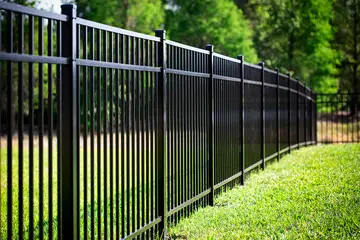Keeping your computer in top shape is essential for smooth performance and longevity. A little proactive care can go a long way in preventing slowdowns, crashes, and unexpected expenses. Here’s a Computer Care Guide that covers the best methods to maintain your PC, ensuring it runs efficiently and lasts for years.
1. Regular Software Updates
One of the simplest yet most effective PC Maintenance Tips is to keep your software up-to-date. Regular updates ensure that your operating system and applications are running the latest versions, which include bug fixes, security patches, and performance improvements. Set your system to update automatically, or check manually at least once a month.
2. Clean Out Unnecessary Files
Over time, computers accumulate a lot of digital clutter—temporary files, unused applications, and duplicate files. Performing a routine cleanup is a key part of any DIY Computer Maintenance plan. Use built-in tools like Disk Cleanup on Windows or Storage Management on macOS to delete unnecessary files and free up space. Additionally, uninstall any software that you no longer use to keep your system light and nimble.
3. Optimize Your Startup Programs
Your computer’s startup sequence can become sluggish if too many programs are set to launch automatically. This is where knowing the Best Practices for PC Upkeep comes in handy. To optimize startup speed, review the list of programs that launch when your computer starts and disable any non-essential applications. On Windows, this can be done via the Task Manager; on macOS, go to System Preferences and manage your login items.
4. Defragment Your Hard Drive
If you’re using a traditional hard drive (HDD), defragmentation is an important process to keep your computer running smoothly. Defragmenting your hard drive reorganizes fragmented data, making it easier for your computer to access files. It’s one of the crucial PC Maintenance Tips that many overlook. Most operating systems have a built-in defragmentation tool that you can set to run automatically at scheduled intervals.
5. Ensure Proper Ventilation and Dust Removal
Dust is one of the biggest enemies of electronic devices. Over time, dust can clog the cooling fans and vents, leading to overheating and reduced performance. As part of your DIY Computer Maintenance, periodically open up your computer case and use compressed air to clean out dust and debris. Ensure that your computer is placed in a well-ventilated area to maintain an optimal temperature.
6. Use Quality Antivirus Software
Cybersecurity is an important aspect of any Computer Care Guide. Investing in a reputable antivirus program is vital to protect your system from malware, viruses, and other malicious threats. Regular scans and real-time protection features will help safeguard your data and prevent any unauthorized access. Make sure your antivirus software is always up-to-date to effectively combat new threats.
7. Backup Your Data Regularly
Backing up your data is an essential precaution that can save you from data loss in case of system failures or cyberattacks. Use external hard drives or cloud storage services to keep a copy of your important files. Adopting this as one of your Best Practices for PC Upkeep ensures that your valuable data is secure and retrievable, no matter what happens.
8. Keep Your System Physically Clean
Your computer’s external parts—like the keyboard, mouse, and monitor—need regular cleaning too. Dust and grime can accumulate, potentially damaging these components or causing health issues like allergies. Use a microfiber cloth for screens and isopropyl alcohol wipes for keyboards and mice. This simple step is part of maintaining a clean and professional workspace.
9. Monitor Your System’s Health
There are numerous tools available to help you monitor your system’s health. Tools like CPU-Z, HWMonitor, and CrystalDiskInfo can provide insights into your computer’s hardware status, including temperature, voltage, and fan speed. Regularly monitoring these metrics can help you catch potential issues early before they lead to more serious problems. This is a part of proactive DIY Computer Maintenance that can save you a lot of headaches down the line.
10. Practice Safe Web Browsing
Browsing the internet exposes your computer to a multitude of threats. One of the lesser-known PC Maintenance Tips is to practice safe browsing habits. Avoid downloading files from untrusted sites, be cautious when clicking on links, and consider using browser extensions that enhance security, such as ad blockers and anti-tracking tools.
Conclusion
Maintaining your computer doesn’t have to be complicated or time-consuming. By following this Computer Care Guide and incorporating these Best Practices for PC Upkeep, you can extend the life of your PC and ensure it continues to perform optimally. With regular care and attention, your computer can serve you well for years to come.




